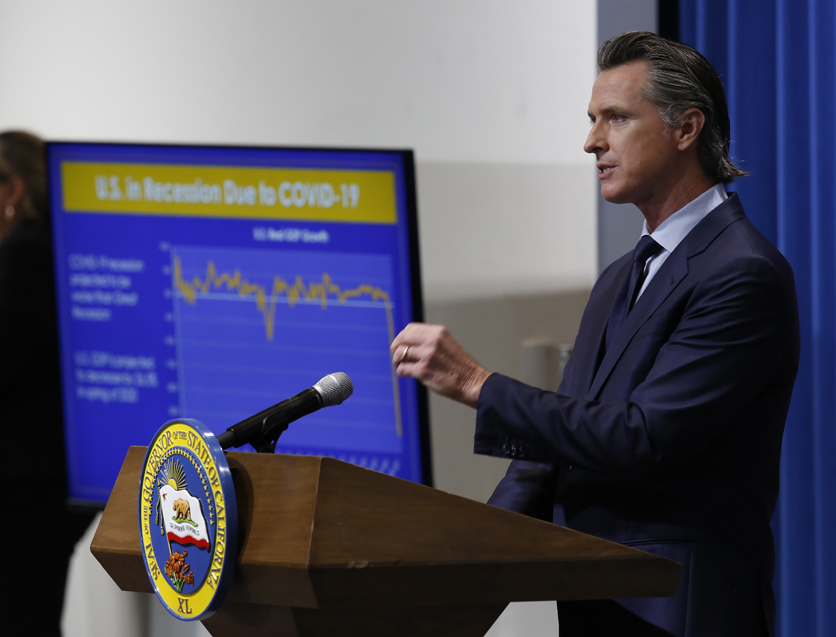Gov. Gavin Newsom is issuing his January budget proposal today, setting the framework for negotiations with lawmakers lasting through the final budget passage at the end of June.
For agriculture, some of the spending priorities will not be a surprise. The current budget—finalized in October—has several two- or three-year funding commitments for climate incentives programs, owing to a budget surplus too massive to spend in a single year. Healthy Soils is set to have $85 million this year. A program for upgrading ag equipment, meanwhile, will gain another $150 million and livestock methane reduction $48 million—two programs farm advocates argue need more funding to meet state air quality goals.
The state passed a $15 billion climate package last year, and the administration is planning another major announcement on this today.
With an anticipated $31 billion revenue surplus, an election year and a ballot proposal for water storage gathering signatures, many in agriculture and water management are pushing the state to boost spending on canals and reservoirs. A budget commitment last year has set aside another $100 million for conveyance needs.
Looking for the best, most comprehensive and balanced news source in agriculture? Our Agri-Pulse editors don't miss a beat! Sign up for a free month-long subscription by clicking here.
Pest control advisors will be watching if CalEPA again targets the state’s mill assessment on pesticides. CalEPA Secretary Jared Blumenfeld took heat last year from ag commissioners and the industry for slipping a mill tax overhaul into the budget. The Senate later blocked the proposal but agreed to fund a study on a proposed tiered fee system based on toxicity.
Last year the governor introduced a $5.1 billion drought relief package ahead of the May revision of his budget proposal last year. While the focus has been on the climate package, resource secretaries will likely address the drought in a stakeholder call this afternoon. The budget is already set to include at least $60 million to support the implementation of the Sustainable Groundwater Management Act, which can include groundwater recharge projects and local infrastructure improvements. Another $50 million will support on-farm water efficiency projects.


